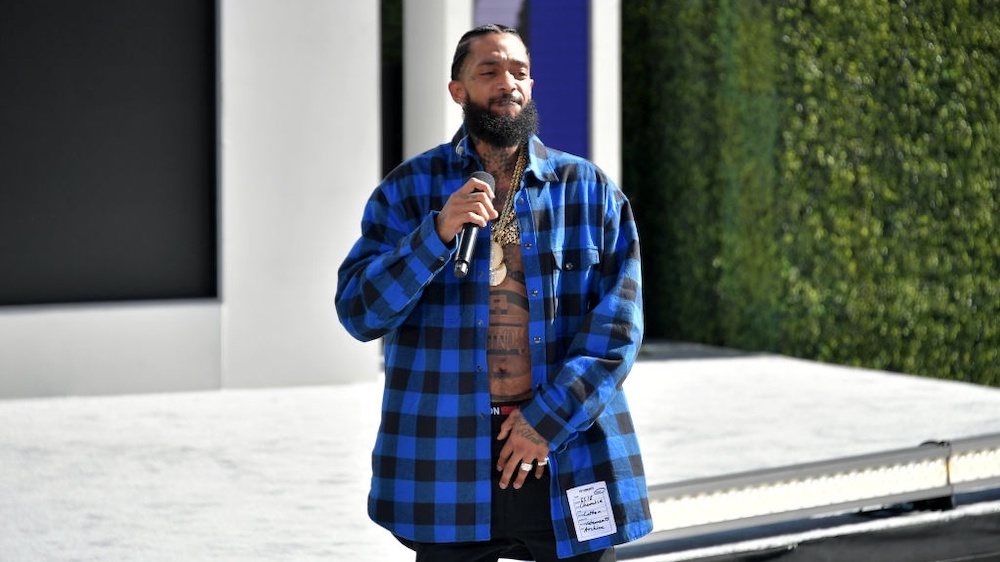If you’re interested in sharing your opinion on any cultural, political or personal topic, create an account here and check out our how-to post to learn more.
On what would’ve been rapper Nipsey Hussle’s 34th birthday, I was saddened by speculation that his legacy may die with him, recently raised by the appearance of a privacy fence around the Marathon Clothing store and parking lot, and a nuisance probe launched by the L.A. city attorney.
Hussle’s business partner David Gross says he erected the fence as he begins the next phase of a planned multi-use development that includes a children’s museum. But even if he put it up to protect his investment, or for what he’s described on social media as the city’s lust to see the project to fail, the physical fence isn’t the real issue. South L.A. residents being fenced out of economic opportunity is the biggest threat to Nipsey’s legacy and the community’s future.
After all, people wouldn’t be hanging out in the parking lot if they had a job.
We’ve seen what’s happening around Crenshaw and Slauson play out in other communities of color that are constantly criminalized. Residents get shut out of the mainstream economy, often due to an arrest or conviction, and as a result some create their own economies. Loitering is symptom of someone’s detachment from productive society. Eventually, they get mixed up in trouble or arrested for standing around while Black. And that arrest, even absent a conviction, is enough for some employers to deny them an interview.
Unemployment in South L.A. is three times the city’s overall rate. Economic opportunity, as we know, reduces violent crime. So, if L.A. officials are concerned about criminal activity around the Marathon Clothing, they should focus on the root causes, like Nipsey did.
The rapper was a social entrepreneur who did more than showcase his success; he generated opportunity. He hired justice-involved youth and gave men and women re-entering society a chance. He was intimately familiar with his community, fully cognizant that the antidote to the systemic issues that plague Black and brown communities is (1) acknowledging people’s humanity and (2) restoring their dignity through access to economic opportunity.
Nipsey turned a perceived liability into an asset. If his legacy is to catalyze a turning point for South L.A., we must focus on interventions that work. Build partnership with employers to connect them to untapped talent in the hood. Advocate and demonstrate the benefits of companies adopting inclusive hiring practices that consider qualifications over a person’s past. Reach out to influencers to hold companies that benefit from Black and brown consumer dollars accountable if they’re fencing us out.
We need everyone with a stake in what happens in South L.A. to commit to driving a triple bottom line return on investment that lifts all ships. If we do that, the marathon will continue.
____
Jeffery T.D. Wallace is President and CEO of LeadersUp, a nonprofit talent development accelerator based in Los Angeles.
